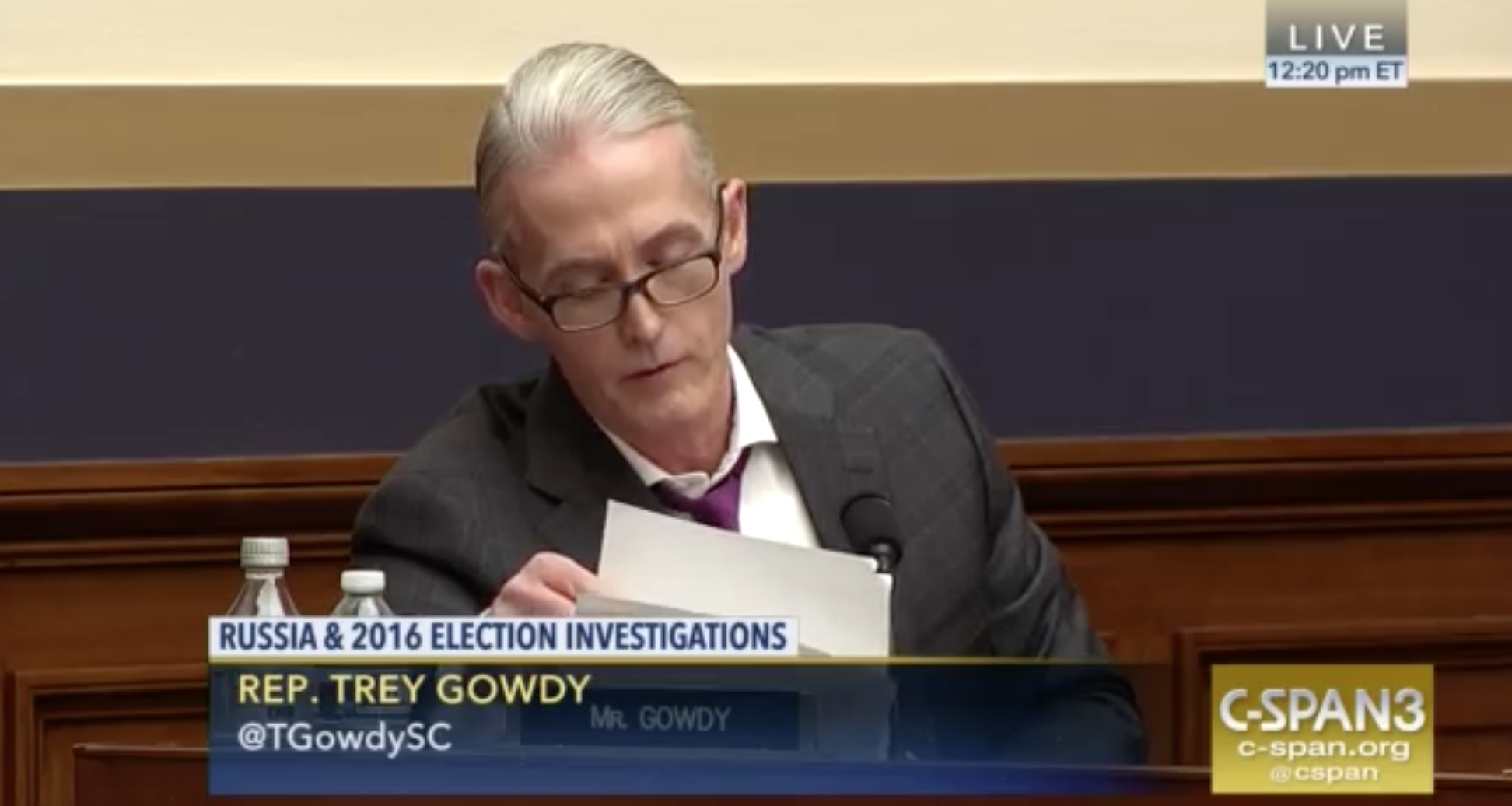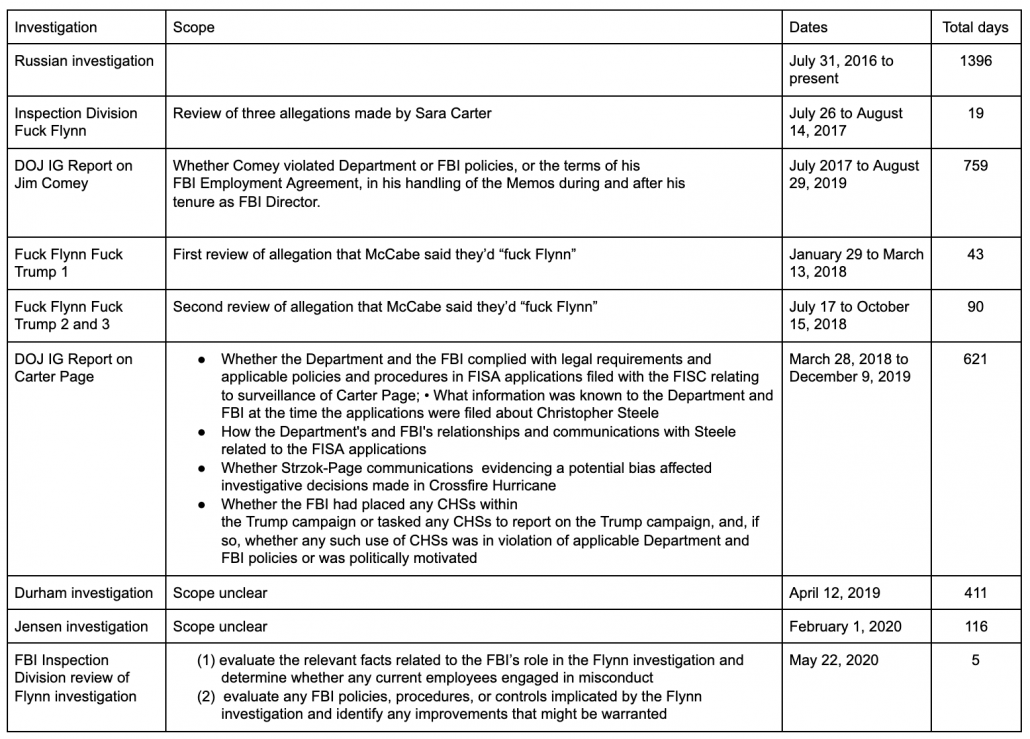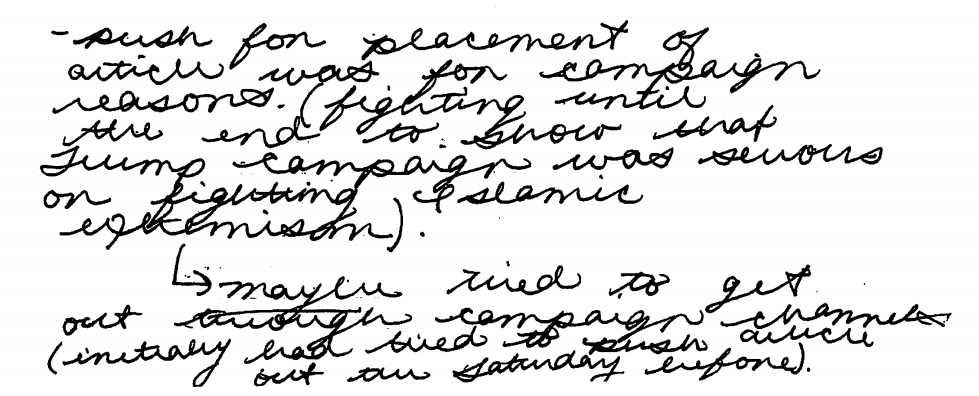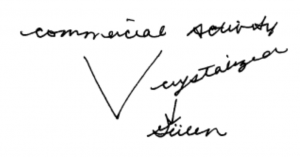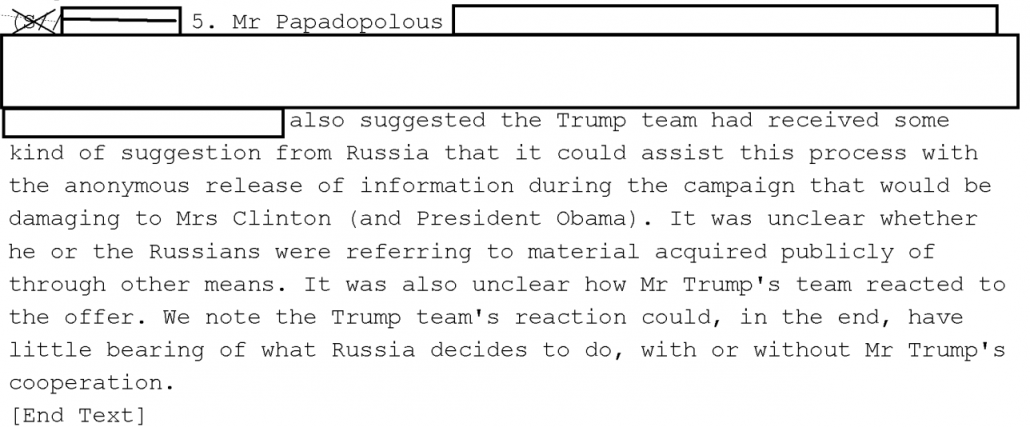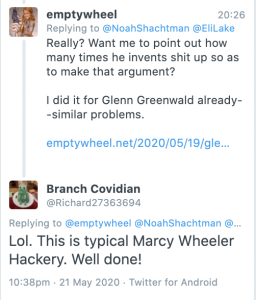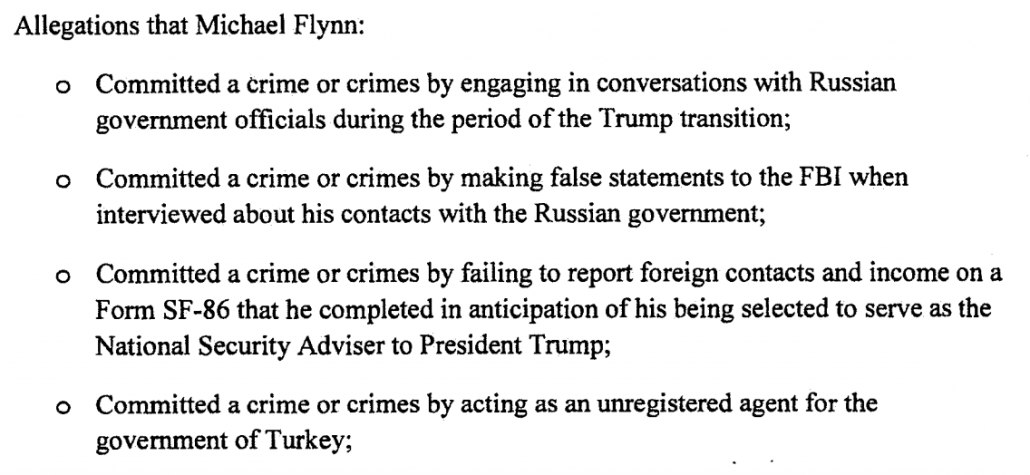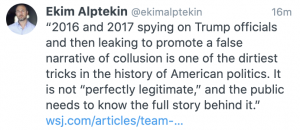“The Boss is Aware:” Trump Learned about Mike Flynn’s Conversations with Sergey Kislyak in Real Time
As I noted, John Ratcliffe has released the transcripts of at least some of the Flynn-Kislyak calls (Ric Grenell said that he didn’t have all transcripts, and there are certainly other transcripts, at least setting up the meeting at which Jared Kushner asked for a back channel). As I also noted, from the very beginning, Kislyak set up the calls with Flynn such that Russian and Trump were unified against the Democrats (though the common enemy referenced in the calls was ISIS).
But that’s not the most damning part of the transcripts.
As I have repeatedly noted, the Mueller Report is very coy about whether Mueller obtained evidence that Flynn spoke directly with Trump about his calls with Kislyak, going so far as to withhold details of the timeline of events on December 29 (Mueller cites Flynn’s call records, but we know from the Stone trial that he also got Trump’s call records, at least for the campaign period). According to the narrative Mueller laid out, the first time that Flynn claimed to remember discussing the conversation with Trump was on January 3, 2017.
On January 3, 2017, Flynn saw the President-Elect in person and thought they discussed the Russian reaction to the sanctions, but Flynn did not have a specific recollection of telling the President-Elect about the substance of his calls with Kislyak. 102
Flynn even claimed that he and Trump didn’t speak about the substance of the calls until February 6.
The week of February 6, Flynn had a one-on-one conversation with the President in the Oval Office about the negative media coverage of his contacts with Kislyak. I93 Flynn recalled that the President was upset and asked him for information on the conversations. 194 Flynn listed the specific dates on which he remembered speaking with Kislyak, but the President corrected one of the dates he listed. I95 The President asked Flynn what he and Kislyak discussed and Flynn responded that he might have talked about sanctions.I96
Flynn’s claimed uncertainty about whether he had discussed the sanctions call with Trump was a key part of Mueller’s analysis of whether Trump fired Jim Comey because Flynn had derogatory information on him.
As part of our investigation, we examined whether the President had a personal stake in the outcome of an investigation into Flynn-for example, whether the President was aware of Flynn’s communications with Kislyak close in time to when they occurred, such that the President knew that Flynn had lied to senior White House officials and that those lies had been passed on to the public. Some evidence suggests that the President knew about the existence and content of Flynn’s calls when they occurred, but the evidence is inconclusive and could not be relied upon to establish the President’s knowledge. In advance of Flynn’s initial call with Kislyak, the President attended a meeting where the sanctions were discussed and an advisor may have mentioned that Flynn was scheduled to talk to Kislyak. Flynn told McFarland about the substance of his calls with Kislyak and said they may have made a difference in Russia’s response, and Flynn recalled talking to Bannon in early January 2017 about how they had successfully “stopped the train on Russia’s response” to the sanctions. It would have been reasonable for Flynn to have wanted the President to know of his communications with Kislyak because Kislyak told Flynn his request had been received at the highest levels in Russia and that Russia had chosen not to retaliate in response to the request, and the President was pleased by the Russian response, calling it a ” [g]reat move.” And the President never said publicly or internally that Flynn had lied to him about the calls with Kislyak.
But McFarland did not recall providing the President-Elect with Flynn’s read-out of his calls with Kislyak, and Flynn does not have a specific recollection of telling the President-Elect directly about the calls. Bannon also said he did not recall hearing about the calls from Flynn. And in February 2017, the President asked Flynn what was discussed on the calls and whether he had lied to the Vice President, suggesting that he did not already know. Our investigation accordingly did not produce evidence that established that the President knew about Flynn’s discussions of sanctions before the Department of Justice notified the White House of those discussions in late January 2017.
But the transcript of Flynn’s December 31, 2016 call makes it clear that Mueller had proof that Flynn had talked with Trump about the Kislyak call, because Flynn told Kislyak that the “boss is aware” of the secure video conference that Kislyak wanted to set up immediately after Trump was inaugurated.
FLYNN: and, you know, we are not going to agree on everything, you know that, but, but I think that we have a lot of things in common. A lot. And we have to figure out how, how to achieve those things, you know and, and be smart about it and, uh, uh, keep the temperature down globally, as well as not just, you know, here, here in the United States and also over in, in Russia.
KISLYAK: yeah.
FLYNN: But globally l want to keep the temperature down and we can do this ifwe are smart about it.
KISLYAK: You’re absolutely right.
FLYNN: I haven’t gotten, I haven’t gotten a, uh, confirmation on the, on the, uh, secure VTC yet, but the, but the boss is aware and so please convey that. [my emphasis]
Flynn might claim that he only told Trump about the video conference and not sanctions (which wouldn’t be remotely credible, given that Flynn was the one who raised the sanctions, not Kislyak). He might claim that any conveyance of the details of the call went to Trump second-hand, perhaps through KT McFarland.
But whatever excuse Flynn would offer (remember, he has been asking for these transcripts since August, so it’s unclear how much of their content John Eisenberg, Reince Priebus, and Mike Pence shared with him in real time), his assurances to Kislyak, offered on December 31, that Trump knew of the request Kislyak had made on the December 29 call makes it quite clear that Flynn knew Trump had learned of the substance of the call via some means within 48 hours of that call.
And then told Mueller he had no idea whether he had shared that information.


